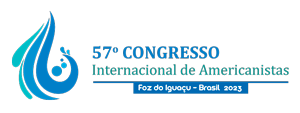| Dados do autor | |
|---|---|
| Sua instituição | Universidade Jaguelônica UJ |
| País de origem do autor | Polônia |
| Dados co-autor(es) [Máximo de 2 co-autores] | |
| Sua titulação | Doutor |
| Proposta de Paper | |
| Área Temática | 21. Relações Internacionais |
| Grupo Temático | Alternative Visions on Global Order: New Perspectives and dialogues for facing the contemporary pandemic crisis |
| Título | Region in the time of cholera: Brazil’s troubled activism in South America in the Bolsonaro years (2019-2022) |
| Resumo | The paper seeks to contribute to the discussion on regionalism and Brazil’s role in regional cooperation in South America with a particular focus on the Bolsonaro years (2019-2022). This period mostly coincided with the Covid-19 pandemic which had a grim toll both in Brazil and in other countries of the region. The main claim is that due to the adoption of a populist foreign policy that redefined the meaning of the neighborhood, Brazil significantly reduced its international activities in the region, weakened the region’s institutional framework by withdrawing or suspending its membership in organizations such as UNASUL and CELAC, and refrained from proposals aimed at cooperating in the fight against the pandemic. These issues need to be addressed by other regional players and the new Brazilian decision-makers in the post-Covid reality. |
| Palavras-chave | |
| Palavras-chave |
|
